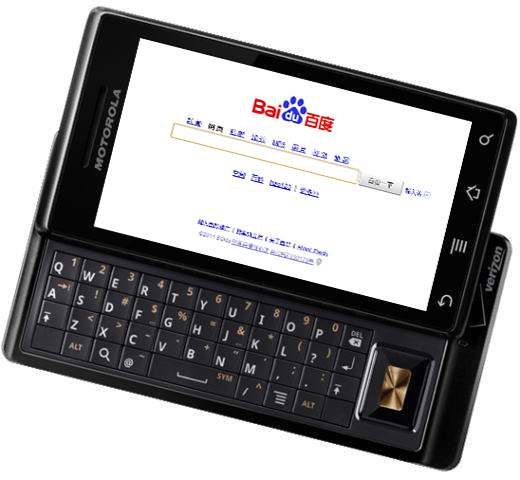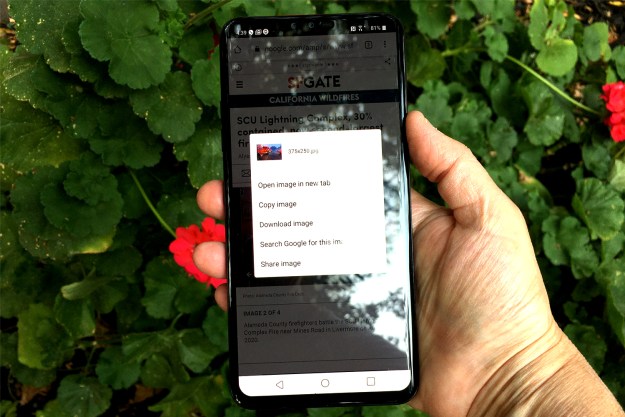 Google’s relationship with China has been fraught with complications. Despite the tension, Google recently told Bloomberg that it’s “confident” it will be able to make an impact on the Chinese market. It does not appear that China feels the same way. Chinese publication TechWeb reports that Yueguo Feng, general manager of Chinese Internet giant Baidu’s wireless business unit, just announced that it will be integrating its search engine into Android phones, replacing Google’s as the phones’ default service.
Google’s relationship with China has been fraught with complications. Despite the tension, Google recently told Bloomberg that it’s “confident” it will be able to make an impact on the Chinese market. It does not appear that China feels the same way. Chinese publication TechWeb reports that Yueguo Feng, general manager of Chinese Internet giant Baidu’s wireless business unit, just announced that it will be integrating its search engine into Android phones, replacing Google’s as the phones’ default service.
Baidu is, more or less, the Google of China. It is the most popular search engine in the country and is expanding into new territory with social networking elements. There is one big, glaring difference however: Baidu has the world’s faster growing market of Internet users at its fingertips, a demographic Google has been specifically excluded from. And now Baidu plans to incorporate its Web service into 80-percent of Android smartphones sold in China, cementing its hold over the world’s most profitable Internet sector.
And investors are taking notice. Baidu is set to announce its quarterly earnings today and analysts expect it to nearly double its performance from this time last year. These bullish predictions aren’t baseless either: Forbes reports that since the beginning of 2011, “shares have soared more than 54-percent.” Google, meanwhile, continues to struggle in China. It’s been about a year since the Internet titan’s conflict with the Chinese government over censorship issues caused it to restrict access to Hong Kong exclusively, and the more recent controversy and ensuing back-and-forth over alleged Gmail hacks originating in China have only added to the tension. Since last year, Google’s share of the Chinese market has taken a nosedive.
But it’s not all bad news for Google. As of December 2010, 50-percent of smartphones in China were running Android OS, and China has said there “should be no limit” on the mobile OS ecosystem as long as developers mind its regulations. Of course, these numbers are nothing compared to the big business Apple is doing in the country, which is now its fastest growing iPhone market.
Google must know that if it wants to compete on an international level, it has to create a better position in China. BBC reports that a new search engine, Goso.cn, which may be backed by China’s Communist Party, is also rumored to have brought on “a number of former Google China executives.” The site wants to give Baidu some competition, and some analysts believe that China’s rapidly growing market of Internet users may mean there’s an opportunity for some search engine diversity. Still, it’s clear that Google faces more than its share of challenges in the country, and that China plans to do everything it can to edge it out.
Editors' Recommendations
- Google has a magical new way for you to control your Android phone
- How to play YouTube in the background on iPhone and Android
- How to find your phone number on iPhone or Android
- Android 15 release date: When will my phone get the update?
- Android phones finally have their own version of AirTags

